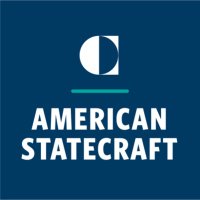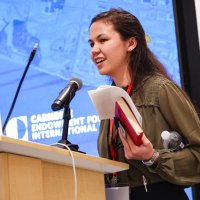
Carnegie Endowment
@carnegieendow
The Global Think Tank.
ID: 21332200
https://carnegieendowment.org/ 19-02-2009 19:52:52
47,47K Tweet
263,263K Followers
342 Following

The 2025 BRICS summit ended with a declaration condemning U.S. policy – though it never mentioned the U.S. by name. Now, President Trump has threatened BRICS countries with “reciprocal” tariffs, labeling their policy “anti-American.” Oliver Stuenkel 🇧🇷 explains 👇

Regulating AI is far from a simple task. But the most effective model of governance, write Ketan Ramakrishnan and Dean W. Ball, is one that centers on the major businesses at the forefront of AI development. More in their latest Carnegie paper: carnegieendowment.org/research/2025/…

Foreigners in Ukraine may have the ideological drive or combat experience that traditionally characterize foreign fighters. But their value in this war largely depends on their tech knowledge. Jethro Norman writes, from Carnegie Democracy and Försvarshögskolan: carnegieendowment.org/research/2025/…

Does Trump care about Taiwan? “He is eager to demonstrate he is getting a ‘good deal’ out of America's allies—and this extends to partners like Taiwan,” Chris Chivvis told Tanya Beckett. 🎧 Listen to the full episode: bbc.com/audio/play/w3c…



The 2025 BRICS summit, which wrapped up on Monday, seemed geared towards avoiding President Trump’s wrath. But Trump labeled the bloc “anti-American” and threatened its member countries with tariffs. What now? Oliver Stuenkel 🇧🇷 for Foreign Policy: foreignpolicy.com/2025/07/08/bri…

My latest for Carnegie Endowment: The Implications of the Iran Nuclear Crisis Could Stretch Far Beyond Tehran (1/4) carnegieendowment.org/emissary/2025/…

🧵Introducing optimal deterrence. Here's my proposed U.S. nuclear strategy for managing escalation, arms racing, and proliferation with two nuclear peers, published through Council on Foreign Relations. Health warning: If you like counterforce, take a DEEP breath before reading on. (1/n)


As the world enters what looks like a new arms race, nuclear escalation and proliferation are becoming harder and harder to avoid. Adopting a strategy of optimal deterrence can help reduce these dangers and preserve peace, argues (((James Acton))). Learn more in the new report for

Sharing the latest China in the World episode from Carnegie China Carnegie Endowment featuring Dr Huong LE THU & Nguyen Khac Giang. We discuss 🇻🇳-🇨🇳 ties as part of our 5 episode season looking at how diff states manage economic & security ties w/🇨🇳. #Vietnam #China …-in-the-world-6693cc67.simplecast.com/episodes/calib…


🆕 Peter Harrell writes that Trump's overhaul of U.S. trade relations presents an opportunity to "use new trade deal provisions to promote increased cooperation against China’s economic and security threats." Read his recs here: academic.oup.com/jiel/advance-a…

Relations between Israel and Türkiye, historically strong, are now at what Alper Coşkun labels “an all-time low.” What went wrong, and what’s next? What happens in Syria may provide some answers, writes Alper for Emissary: carnegieendowment.org/emissary/2025/…

Last weekend's holiday "presents an opening to recall that democracy is not something we have, but something we do. It is something we practice." Carnegie Democracy's Ben Naimark-Rowse on the 4th of July: carnegieendowment.org/posts/2025/07/…

Gulf countries’ response to the U.S.-Iran-Israel conflict was largely to stay away. But each country took a different approach – and their influence in the conflict’s aftermath may be quite limited. Andrew Leber explains: More from Andrew in Emissary: carnegieendowment.org/emissary/2025/…
